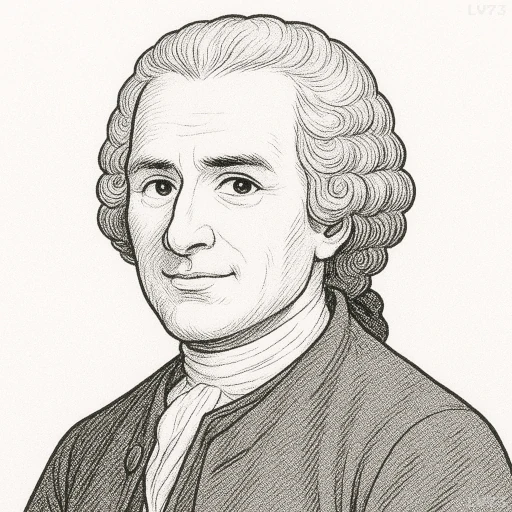“Fame is but the breath of people, and that often unwholesome.”

- June 28, 1712 – July 2, 1778
- Born in Geneva
- Philosopher, political philosopher, writer, composer
table of contents
Quote
“Fame is but the breath of people, and that often unwholesome.”
Explanation
In this quote, Jean-Jacques Rousseau critiques the concept of fame, viewing it as something ephemeral and unreliable. He suggests that fame is simply the opinion or attention of others, often fleeting and subject to the whims of public judgment. By describing fame as the “breath of people,” Rousseau emphasizes its transient nature, implying that it is as insubstantial as air and can easily be changed or lost. He also warns that this public opinion is often unwholesome, meaning that fame can be driven by superficiality, envy, or scandal, and may not reflect true worth or virtue.
Historically, Rousseau’s views on fame were shaped by his own experiences. Despite his significant influence as a philosopher, Rousseau struggled with public perception throughout his life. He often felt misunderstood or maligned by the very society he sought to critique. Rousseau’s disillusionment with fame is consistent with his broader philosophy about the corrupting influences of society and the artificial values placed on public approval. He was deeply skeptical of the way that social fame could distort true happiness and personal integrity, suggesting that the pursuit of external validation could lead people away from more meaningful goals.
In modern times, this quote resonates in a world where fame is more accessible than ever, thanks to social media and celebrity culture. The relentless pursuit of fame—often driven by shallow or fleeting measures of success—can sometimes lead to superficiality, insecurity, and loss of self-worth. Rousseau’s words remind us to question the value of fame and to recognize that true fulfillment does not come from public recognition but from internal satisfaction and authenticity. In a culture that often elevates fleeting popularity over genuine accomplishments, Rousseau’s quote serves as a cautionary reflection on the transience and potential toxicity of fame.
Would you like to share your impressions or related stories about this quote in the comments section?

